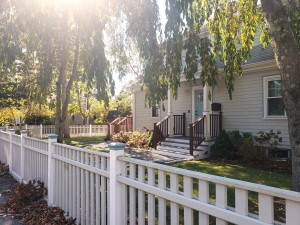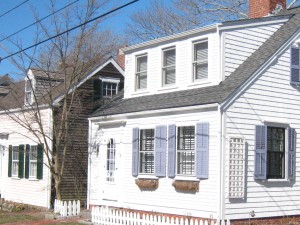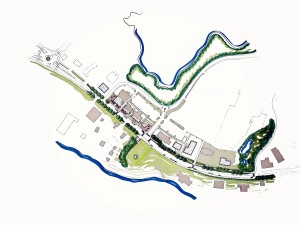Overview
The Cape Cod Commission periodically surveys the second homeowner population on Cape Cod to understand how second homes are used, how they might be used in the future, and how second homeowners participate in the local economy. Surveys were conducted by the University of Massachusetts Donahue Institute (UMDI) in 2008, 2017, and 2021. The findings of this research informs economic development and land-use planning across Cape Cod.
2021 Second Homeowner Survey
The Cape Cod Commission contracted with the Donahue Institute at UMass Amherst and the Center for Public Opinion at UMass Lowell on a 2021 Cape Cod Second Homeowner Survey. The survey builds off of previous second homeowner surveys and also looks to better understand potential COVID-19 pandemic impacts on use of the region's second homes. In a parallel effort in 2021, the Cape Cod Commission contracted with the Donahue Institute at UMass Amherst and the Center for Public Opinion at UMass Lowell to survey people who had purchased a home in the region between April 2020 and mid-May 2021 to better understand people's decisions to buy a home in the region, including the impacts of the COVID-19 pandemic. More information on the 2021 new homeowner survey can be found here.

To obtain a representative sample of second homeowners, a random sample of 20,000 identified second homeowners from a list of over 60,000 were invited to respond to an online survey; 924 homeowners completed the survey. The average age of second homeowners was 66, up from 65 in 2017 and 60 in 2008. More second homeowners had achieved higher levels of education than in previous years; around 90 percent held a bachelor’s degree or more advanced degree compared to 80 percent in 2017 and 79 percent in 2008. Just over one quarter of respondents reported that this was not the first property that their families had owned on the Cape (26%). Of those homeowners whose families had owned property on the Cape before, 71 percent reported that their family had owned property on the Cape for more than 25 years.
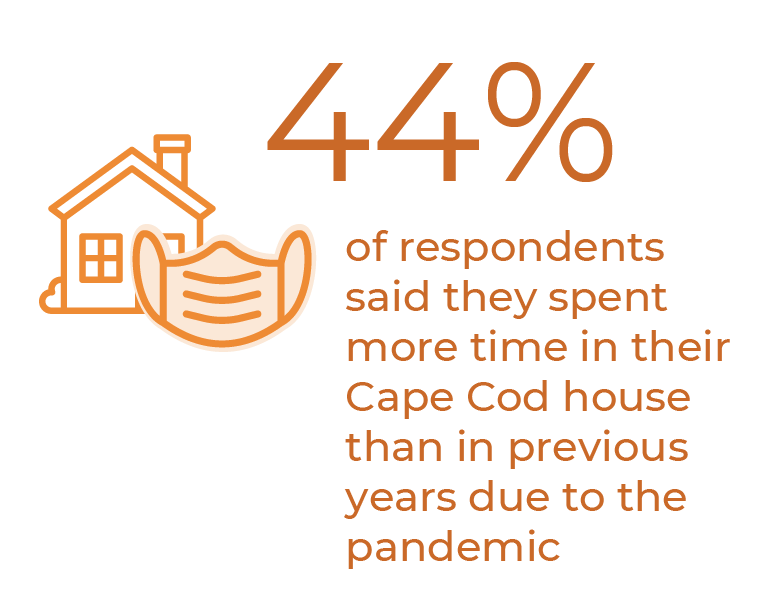 Overall, personal use of second homes appears to have increased both in terms of the days of occupancy and self-reported use of second homes. Forty-four percent reported that the COVID-19 pandemic has increased their personal use of their property; this is particularly true among those whose primary residences are in Massachusetts. However, a significant share of second homeowners, particularly those who live outside of Massachusetts, indicated that the pandemic has not changed their use of their home, and a small group have reported that they have used their home less because travel has become riskier.
Overall, personal use of second homes appears to have increased both in terms of the days of occupancy and self-reported use of second homes. Forty-four percent reported that the COVID-19 pandemic has increased their personal use of their property; this is particularly true among those whose primary residences are in Massachusetts. However, a significant share of second homeowners, particularly those who live outside of Massachusetts, indicated that the pandemic has not changed their use of their home, and a small group have reported that they have used their home less because travel has become riskier.
Second homeowners were working remotely and in hybrid situations at high rates throughout the pandemic. However, less than half of respondents reported intentions to relocate to Cape Cod permanently, and among those who did only 9 percent intended to work full-time, in contrast to over two-thirds who intended to retire. Compared to prior surveys, second homeowners were more likely to report plans to use the home as their primary residence or convert it to their primary residence. Use of the second home as a rental property remained relatively consistent with prior surveys.
This survey also asked second homeowners about their interest in making their homes more energy efficient and reducing greenhouse gas emissions. Many were only in the planning stages of making these modifications, but there was interest in several possible actions.
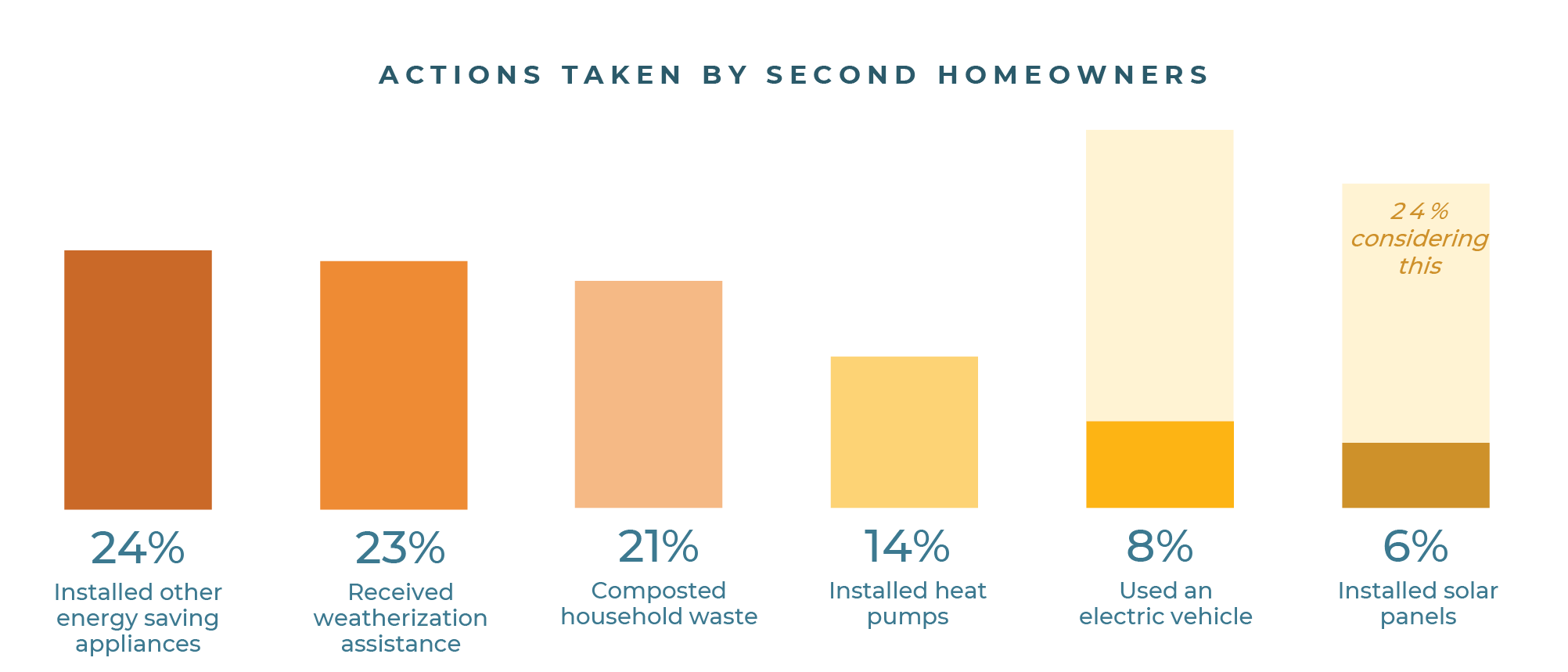
This survey shows that Cape Cod remains a destination for retirees and individuals looking for open space, access to the coast, and outdoor recreation. The pandemic has impacted many second homeowners’ use of their Cape properties and while the pandemic may ultimately change residential and workplace patterns, the extent of these changes are unknown at this point in time. However, this survey and report provide data to help understand current and future trends in second homeowners’ use of their homes, as well as key data for understanding the changes in the region during the pandemic.
Contact
-
Chloe Schaeferchloe.schaefer@capecodcommission.org
